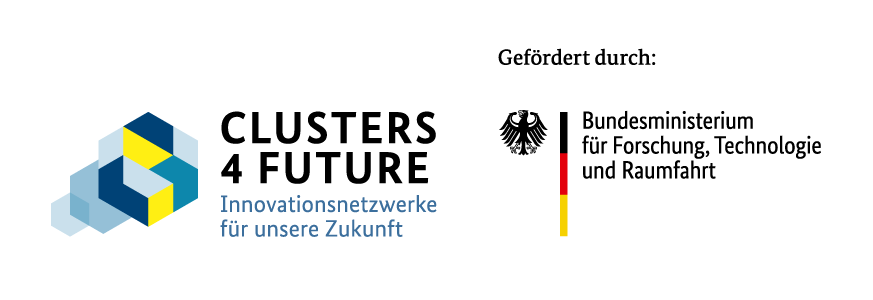Germany's future of mobility: What must be included in the new coalition agreement?
With the planned 500 billion euro special fund for infrastructure and climate protection, Germany has large investment funds at its disposal. But money alone is not enough. Clear guidelines are needed for a sustainable mobility policy that promotes innovation, climate protection and competitiveness in equal measure.
A 5-point plan for sustainable mobility
Together with the Technical University of Munich, UnternehmerTUM and over 50 partners from practice and research, Germany's largest mobility cluster MCube has developed a concrete 5-point plan. This was presented and discussed on March 13, 2025 in the MCube Speaker Series at the TUM Think Tank of the Munich School of Public Policy in front of over 80 guests, including Munich's 2nd Mayor Dominik Krause and mobility managers from 15 municipalities.
The key points at a glance:
A differentiated approach to urban and rural areas - targeted promotion of sustainable mobility
Mobility requirements differ fundamentally in urban and rural areas:
Implementing mobility innovations in practice - founding a "DATI Mobility" agency
Germany invests more in research than the USA, but lags behind when it comes to implementation. A "DATI-Mobility" transfer agency aims to transfer research into marketable business models and accelerate innovation. This will create added value and practical applications.
Driving autonomous driving forward in a targeted manner
Germany is at risk of being left behind when it comes to autonomous driving. To prevent this, model regions are needed in which local authorities, providers, suppliers and research work closely together. In addition to Hamburg, another region should test autonomous commuter solutions in order to ensure rapid implementation, new business models and an international pioneering role.
️ Strengthening local authorities - more speed and scope for action
Many mobility measures fail due to slow decision-making processes. Local authorities need more freedom to decide on speed limits, parking space management and the promotion of cycling and walking. Goal: Reduce bureaucracy and act faster.
Securing funding for public transport - through a long-term infrastructure fund
A sustainable transport infrastructure requires planning security. A long-term infrastructure fund based on the Swiss model could finance public transport independently of short-term political decisions, secure jobs and keep mobility stable in the long term.
To the complete catalog of measures: Link
How can mobility data and simulations make cities more liveable - and make change visible and tangible?
The MCube Consulting study shows how the Olympic Games could have a sustainable impact on Munich in terms of sport, society and the environment - something that has already been picked up on by many media outlets.
Munich is considering an Olympic bid - our study shows what opportunities and challenges the Games could bring for the economy, environment and society.
How do we want to move tomorrow? This question was the focus of the Citizens Lab at Marienplatz for six days.
The visual utopian Jan Kamensky presented his latest vision in cooperation with the Munich S-Bahn.
Carolin Zimmer from the Chair of Settlement Structure and Transport Planning and Sebastian Preiß from the Hans Sauer Foundation explain in an interview what the project has achieved and what makes it special.
Major award for a strong team: MCube Consulting receives the Innovation Award of the City of Munich - for a solution that reduces administrative workload, improves security and shows how research enables real change.
If Munich bids for the Olympics again, it will not do so arbitrarily - but with vision, attitude and a clear plan.
MCube had its own stand at the trade fair and brought together over 100 mobility pioneers at the "Bridging City Innovation Ecosystems" event above the rooftops of Barcelona.
What does the bus of tomorrow need to look like to convince as many people as possible to change buses voluntarily?
No results available

What is MOSAIQ?
Imagine something: There is more space for people. The streets have more trees and plants. Everyone can get around better. That's how your Schwabing-West district could be in the future. How would you like your district to be? We want to talk to you about it!
The project is called MOSAIQ. MOSAIQ is a research∙project. MOSAIQ means: Mobility and urban climate in the future city∙part. The Technical University of Munich is leading the project.
What is MOSAIQ about?
MOSAIQ wants to make the streets in the city∙part more beautiful. People should feel comfortable there. There should be more space. For meetings and plants, for example. You can help decide what is tried out in the Stadt∙teil. The ideas come from you. Some ideas will be tried out on the streets for a certain period of time.
The aim of MOSAIQ is to make urban districts good places to live.
At the same time, the climate in the city should improve. And people should be able to move around the city easily.
What is happening in the district?